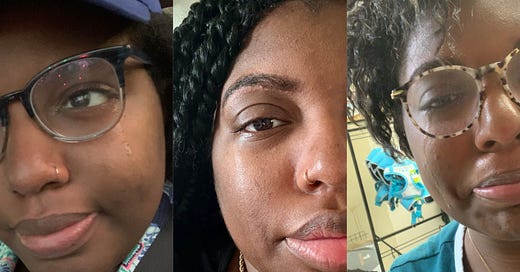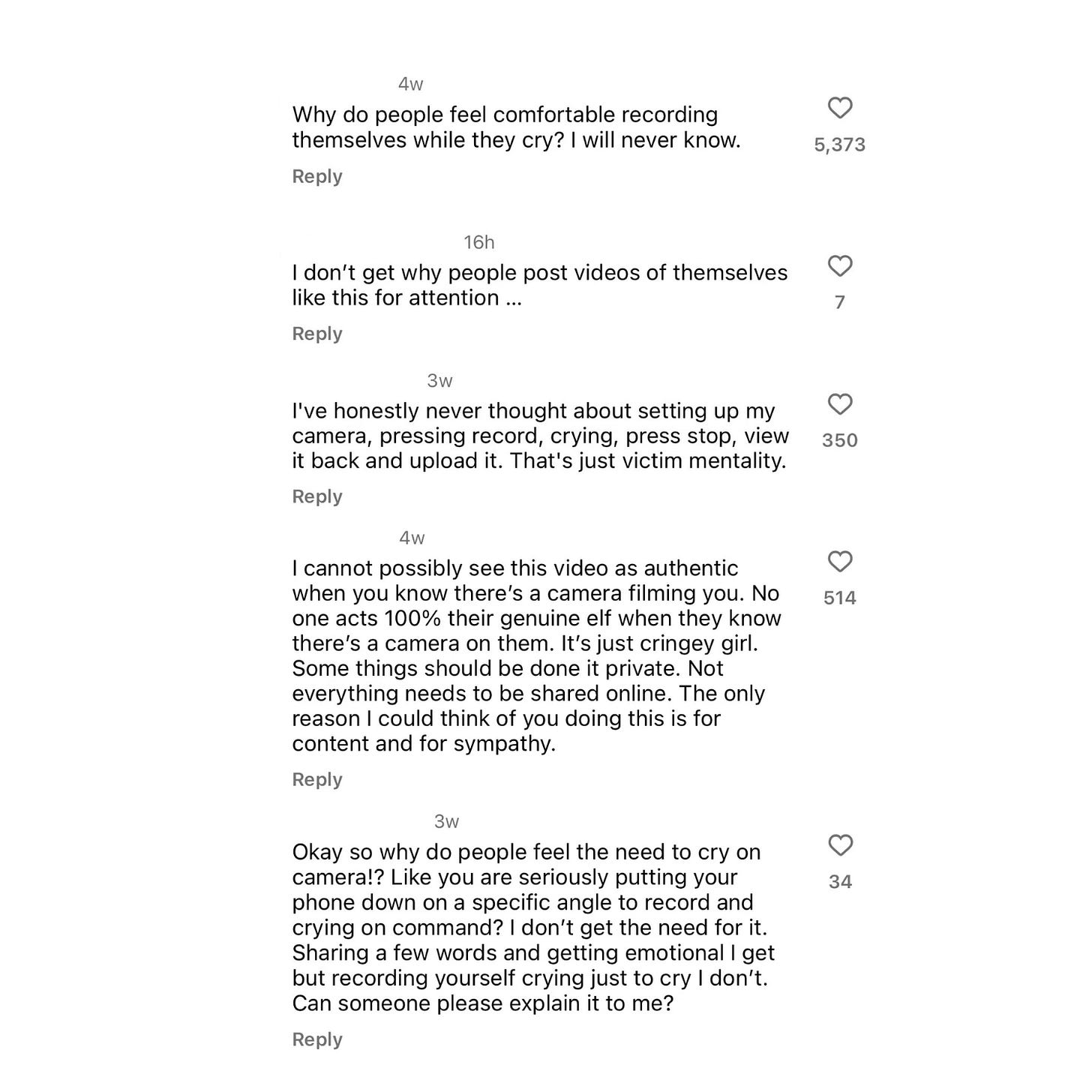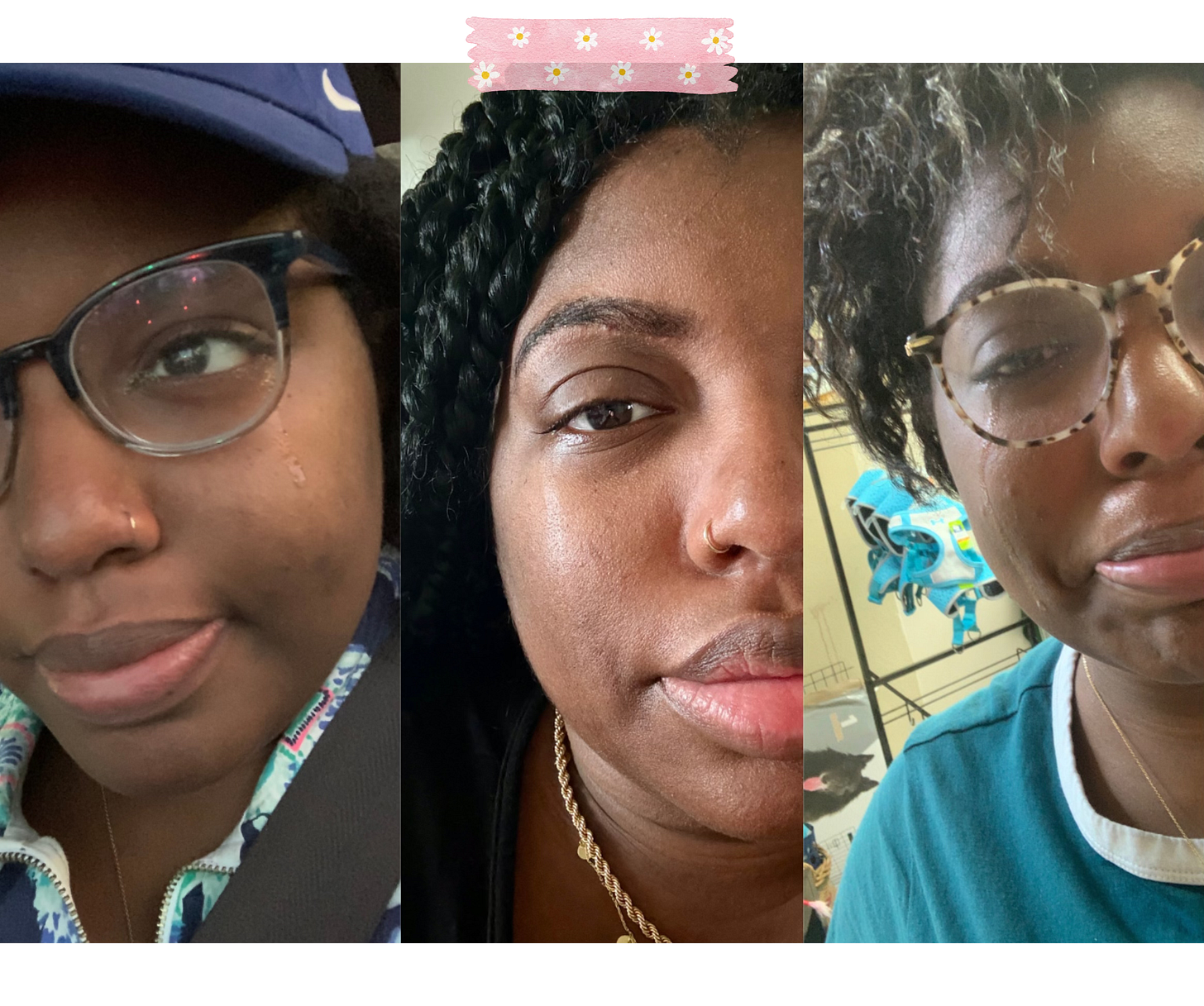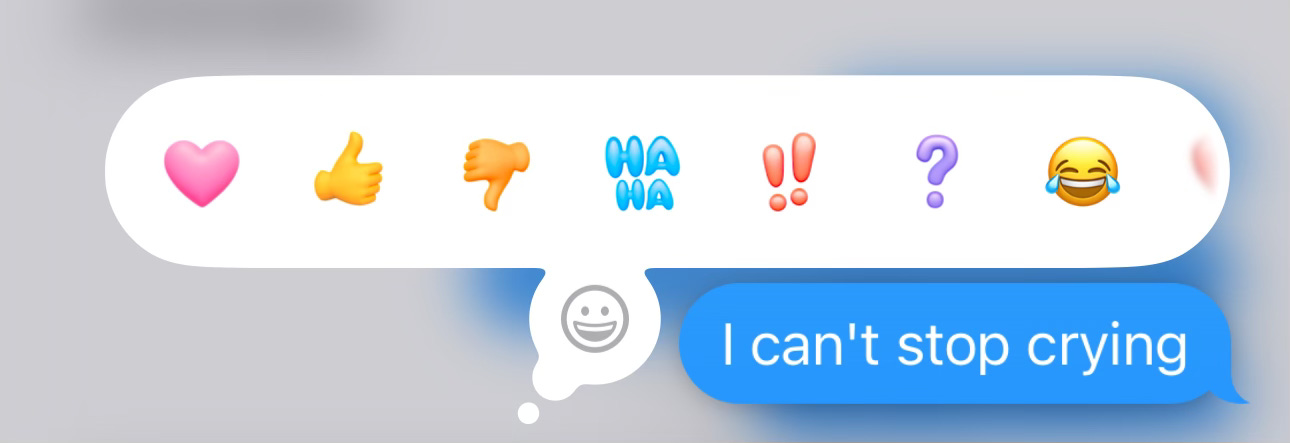You’re standing in front of me, and the news you’re about to deliver is Not Good. I can tell from the look on your face. I brace myself not just for the reveal but for my reaction. I’ve grown to accept the inevitable. A knot will form in my throat as my eyes well up. I’ll try to blink away tears and fail, making a mess of myself as I search for Kleenex in my purse before you’ve even told me what’s going on. You’ll probably pity me.
When positive things happen, I often respond the same way, but that’s always less embarrassing. Think of a celebrity at an award show who weeps while delivering a perfectly timed speech. We feel it all with them — the disbelief. The wonder. The exhilaration. Their emotion is palpable, and the world is here for it. That’s the good kind of crying. My kind, on the other hand, isn’t so pretty.
When you feel tears coming on, pretend the droplets are globs of ice cream trickling down your face, making a sticky mess. It’s silly enough that you’ll forget to keep crying. That’s what a book I read in middle school told me, and I’ve taken the advice for years. I close my eyes hard and think about melted bubble gum ice cream hiding behind my lids. It works about half the time.
I recently shared that I struggle to accept well-meaning, constructive criticism with a neutral face. A boss once admonished me for being late to work. I couldn’t hold back my tears because I was so embarrassed I’d made a mistake. Soon, they were apologizing for upsetting me. I left the meeting overwhelmed. Even the ice cream couldn’t save me.
I still struggle to control my emotions, but I’ve started to ask a different question. Do they need to be controlled in the first place? I wonder if crying is a sign of weakness or if we’ve been conditioned to find genuine displays of emotion undesirable. These days, rather than profusely apologizing when I get teary, I try to just…let it happen. I’ll acknowledge that this is an idealistic worldview. A woman who cries at work may rightly worry about people perceiving her differently. And crying all the time can be a sign of an underlying issue, like depression. Still, nothing should be humiliating about letting it all out.
But what about sharing it with the world?
The videos found me via my explore page. In the first, an influencer leans her head on a car window as tears fall and an Adele song plays in the background. In the second, she sobs as she curls her hair in an all-white bathroom, taking deep breaths. Both videos are short clips spliced together, which means she edited them before pressing the post button. Many of the comments are positive, but the ones that aren’t are brutal. What type of person films themselves crying?
And I get it. It feels terribly contrived, someone propping up a phone, hitting the record button, and making sure they’re centered in the frame, all while weeping. Sometimes, I imagine, the final video takes multiple takes. Then, you have to come up with the perfect caption and probably post it at a specific time for the sake of the Instagram algorithm. I can make myself cry on demand if I try hard enough, and I understand if people wonder whether that’s what’s happening here. But…I’m also a bit of a hypocrite. See, I’m kind of the queen of the crying selfie.
I haven’t whipped out my phone to post Reels about my tears, but I document moments many people would keep private. Most of these pictures don’t make it out of the texts I send to my husband or group chats unless they’re for happy reasons — much more acceptable, as I mentioned. Last week, I posted a picture of my tear-stained face after finishing the penultimate episode of Paradise — sharing just felt natural. I’m unashamed to admit I maneuvered my phone to ensure the photo was well-lit. What can I say?
Many of my sobbing pictures are from my three pregnancies, when hearing a sad song or seeing a cute baby would tear me open. Toward the end of my last one, I had a meltdown so severe that I briefly hated my doctor for telling me I couldn’t have benzos until I gave birth. I was inconsolable about the physical pain on the horizon and the significant chance I might lose my mind again. In the aftermath, as I mercifully calmed down, I looked at my swollen eyes in the mirror and decided to take a picture. I can’t tell you why.
I cried when I met the dog I knew I would adopt. Of course, I couldn’t help but choke on tears when I lost her four-and-a-half years later. I wept so furiously that the nurse from the vet hospital gave me a big box of tissues and said to keep it. I don’t want to remember anything about the day she died, so those tears weren’t preserved. I don’t capture my face when my heart feels like it’s been ripped out. But mostly everything else is fair game. Why take any pictures in the first place? It’s often not deep — I want a permanent reminder of how life treated me that day. Yes, I have a journal where I chronicle my daily life, but a photo is more tangible. And sometimes, you just need to show your friends that your “I’m crying” text was literal.
I feel self-conscious when I realize how it looks to others, especially those less online than I am. I imagine opening my photos app in front of my friends who lead more private lives and getting their reactions. Would they find me out of touch? I guess I could ask and find out, but I'm afraid to know. Even the images I keep to myself are, by definition, self-centered. And, duh, I want a reply when I do share. If I send a crying selfie to someone I love, I'll be disappointed if I'm met with silence. It'd sting if I posted a sobbing video online and got zero likes or comments. So yes, I'm after some form of validation, just like everyone else. But I've thankfully never faced the Internet's wrath for it.
My biggest issue with the people on that influencer’s post isn’t that they were wrong. It’s the lack of compassion — a hard thing to find in a social media comment section, I know. Let’s say someone hopes for sympathy when they share a sad photo. Would it be so hard to extend it to them instead of flinging an accusation? Of course, it’s easier to just tell her she’s faking it.
Looking back at the personal writing I've shared over the last several years, there's a terrifying question that plagues me. What if someone thinks I'm sharing because I want people to feel bad for me? After all, there's no greater sin in this world than a woman who wants attention. But maybe we've lost the plot. Have we considered that someone seemingly fishing for positive comments might need them? Is it such a bad thing to yell for help, even if the request is made in a way that isn't as palatable as some of us would like? Watching someone cry is a vulnerable thing, even when I only know them through a screen, but I can't look away and don't know if I should. It could be a legitimate plea or an out-of-touch attempt to seem relatable. Or it's more straightforward, and someone just wanted to cry on the Internet that day. It's not my place to determine. It leads to a bigger question of why we punish people willing to fully express themselves, even if the result is a bit cringe.
I’m still discerning, of course. I can’t pretend people’s motives are always pure. Who can forget the story of the woman who accidentally uploaded a video showing her child how to cry on camera after revealing the family dog was sick? A sobbing video means engagement, and engagement means money. It’s the Internet — grifting is the name of the game. But I’ve been trying (often failing!) to approach the content I consume with less cynicism. I hope the crying influencer is doing alright, regardless of what and why she chooses to post. As for me? I’ll continue to cry — and sometimes, you might find the proof on my camera roll.









